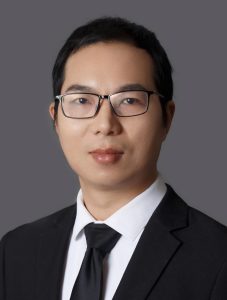Biography:
Pan Peng is a faculty member in the School of Computer Science and Technology of University of Science and Technology of China (USTC). He has served as a lecturer (assistant professor) in the Department of Computer Science at University of Sheffield, UK. He has held assistant researcher position of Institute of Software, Chinese Academy of Sciences, and postdoc positions of TU Dortmund, Germany and University of Vienna, Austria. His research goal centers on advancing the theory and application of graph algorithms and big data algorithms. He has been invited to serve as program committee members of many internationally renowned conferences (such as STACS, LATIN, AAAI, IJCAI). His work has been published at top conferences, including STOC, SODA, COLT, PODS, NeurIPS, ICML etc.
Research Interest:
The PI’s research is characterized by a dynamic exploration of theoretical computer science, network science, and data science. His research interests spans a range of topics, including graph algorithms, big data algorithms (e.g. property testing, streaming algorithms), spectral graph theory, dynamic graph algorithms, graph sparsification/compression, and random graphs. Recently, he has delved into emerging fields such as differential privacy, robust algorithms and quantum algorithms.
What You Can Expect in the Project:
Students can anticipate engaging in theoretical and practical research on graph algorithms within contemporary computational models. The scope encompasses diverse areas, such as local algorithms that probe specific portions of a graph, streaming algorithms tailored for processing sequences of edge updates, and the development of algorithms characterized by reduced computational complexity. This research endeavor offers a stimulating platform for students to delve into cutting-edge topics and contribute meaningfully to the evolving landscape of theory and applications of algorithms.
Number of Participants:
Two
Desired Skill and Background:
Have a deep passion for the Design and Analysis of Algorithms: Having passed a few advanced-level undergraduate courses, or participated in reading groups on algorithms, combinatorics, probability, and/or algebra.

